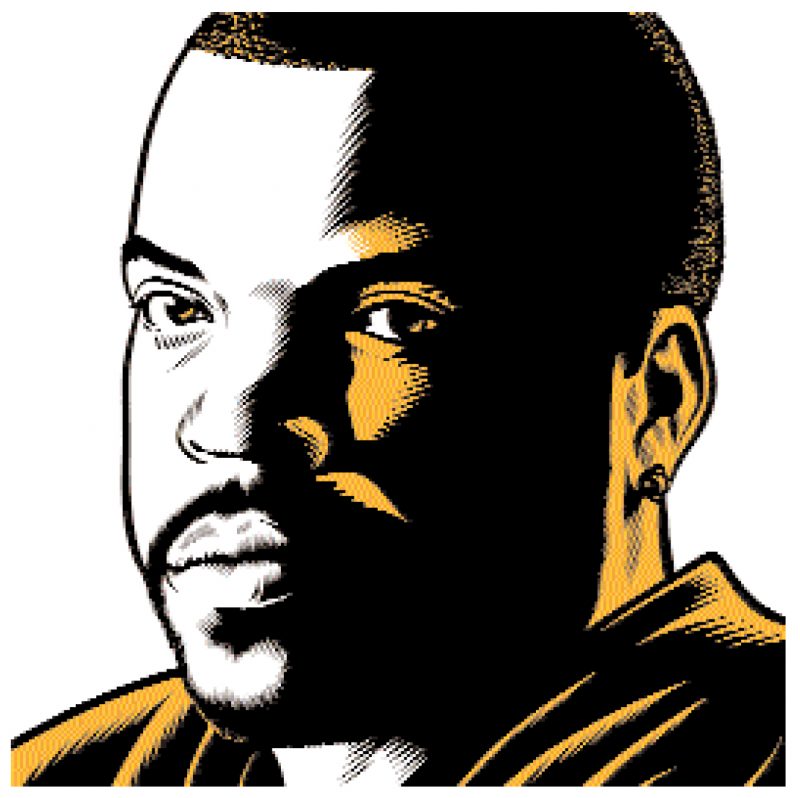Once upon a time, the name Ice Cube was analogous to explicit lyrics, guns, women as “bitches,” South Central, and attitude. Bad attitude. Not to mention mind-blowing rap music wrapped in raw emotions. But those were Ice Cube’s teen years, before he married Kimberly Jackson, became father to four kids, and turned into a true Hollywood player. A legend long before he turned thirty, Ice Cube, together with his fellow N.W.A. members, revolutionized not only the rap/hiphop genre, but all music, by making it OK for musicians to speak their minds and then some.
Over the last decade, Ice Cube, whose given name is O’Shea Jackson, has made more waves in the film business than in the music business. This is no coincidence. Ice Cube’s Hollywood game plan has been to produce reasonably budgeted films featuring themes and characters the audience would actually go and see. The Friday franchise, of which he is the backbone and originator, has made over $200 million. After revamping the Barbershop script and tailoring his role as barbershop owner Calvin, the film grossed almost $80 million. And that was before the DVD release.
As an actor, Ice Cube is well on his way to the Hollywood A-list. His performances in Boyz N the Hood and Three Kings were astounding. Next year, Ice Cube is replacing Vin Diesel in the XXX sequel. He has a starring role in the upcoming film Torque (January 2004) and is in preproduction of his own script, Are We There Yet? His new album, Terrorist Threats, will be out on December 9th.
On a recent Monday afternoon, Ice Cube talked to the Believer, for almost two hours, from his home somewhere outside L.A.
—Linda Saetre
I. “THERE WERE KIDS WHO WERE LOOKING FOR TROUBLE AND THERE WERE KIDS WHO WEREN’T LOOKING FOR NO TROUBLE, AND I WASN’T LOOKING FOR NO TROUBLE.”
THE BELIEVER: Where does the name Ice Cube come from?
ICE CUBE: I was given the name by my brother when I was about eleven or twelve years old. He was older than me, and around that age I was starting to get into girls, and when they would call the house for him, and when he was not there, I would try to talk to them. I was trying to be the man and trying to get them to come and see me, not worrying about him. When he found out… he started calling me Ice Cube as a joke because he said I was trying to be too cool. I just liked it and started telling everybody in the hood...
You have reached your article limit
Sign up for a digital subscription and continue reading all new issues, plus our entire archives, for just $1.50/month.
Already a subscriber? Sign in





